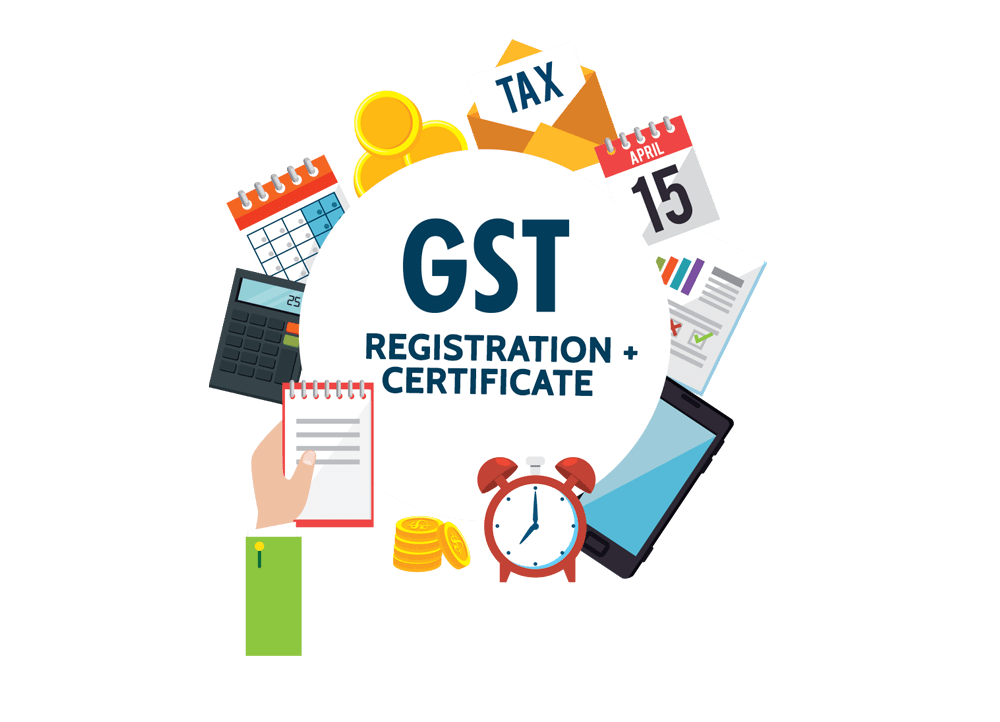Leading Rated Best GST Registration Services in Singapore for 2024
Leading Rated Best GST Registration Services in Singapore for 2024
Blog Article
From Beginning to End Up: The Ultimate Roadmap to GST Enrollment for Services Looking For Financial Security
Browsing the intricacies of Item and Provider Tax Obligation (GST) enrollment is an essential step for companies striving for financial stability. Damaging down the roadmap right into workable steps can improve the registration journey for services looking to improve their economic standing.
Comprehending GST Fundamentals
Exploring the essential principles of Product and Solutions Tax Obligation (GST) is essential for acquiring a comprehensive understanding of its implications on businesses and the economic situation. GST is a value-added tax obligation levied on most items and solutions for domestic intake. It has actually replaced numerous indirect tax obligations that existed in the pre-GST age, streamlining the tax framework and improving simplicity of doing company in India. Under the GST system, both goods and solutions are tired at a particular price, which is figured out based on their category. If their yearly turnover goes beyond the threshold limit established by the government, businesses are needed to register for GST. Input Tax Obligation Credit (ITC) is a significant function of GST, allowing organizations to assert credit history for taxes paid on inputs, lowering the total tax obligation worry. Understanding the basics of GST is important for companies to abide by tax obligation policies, manage their finances successfully, and add to the country's economic growth by getting involved in a transparent tax system.
Eligibility Requirements for Registration
As of the existing policies, the threshold limit for GST enrollment is an annual accumulation turnover of 40 lakhs for organizations running within a state, except for special category states where the limit is 20 lakhs. Additionally, particular companies are called for to register for GST irrespective of their turn over, such as interstate suppliers, laid-back taxed persons, and services accountable to pay tax under the reverse fee device. It is essential for organizations to thoroughly examine their turn over and transaction types to identify their GST enrollment commitments accurately.
Records Needed for Enrollment
Having actually fulfilled the qualification criteria for GST registration, services have to currently guarantee they have the requisite documents in position to proceed with the enrollment procedure successfully. The records needed for GST registration usually consist of evidence of organization constitution, such as partnership deed, registration certificate, or consolidation certification for different kinds of services. In addition, organizations require to give records developing the major area of organization, such as a rental arrangement or electricity bill. PAN card of business, along with the identification and address proof next page of promoters/partners/directors, are vital for useful source confirmation purposes. Financial institution account statements, along with canceled cheques or a duplicate of the financial institution passbook, are needed to verify the financial information given throughout registration. Additionally, companies must have electronic trademarks prepared for the accredited signature. Making certain all these papers are organized and readily offered will certainly accelerate the GST registration procedure, allowing companies to follow tax obligation policies flawlessly.
Step-by-Step Enrollment Refine
Beginning the GST enrollment procedure involves a collection of structured actions to ensure a compliant and seamless registration for companies. The very first step is to visit the GST site and complete the registration form with precise information of business entity. Following this, the applicant gets a Momentary Referral Number (TRN) which is used to return to the application procedure if it's not completed in one go.
Following, all called for records based on the checklist supplied by the GST portal need to be posted. These papers typically consist of evidence of company address, registration and identification evidence of promoters, financial statements, and service entity's frying pan card.

Post-Registration Compliance Guidelines

Verdict
To conclude, businesses seeking economic security needs to comprehend the fundamentals of GST, satisfy qualification criteria, collect required documents, follow the step-by-step enrollment process, and adhere to post-registration guidelines - Best GST registration services in Singapore. By sticking to these actions, services can guarantee compliance with tax obligation guidelines and maintain economic security over time
In addition, specific companies are required to sign up for GST irrespective of their turn over, such as interstate vendors, casual taxed persons, and businesses accountable to pay tax under the reverse cost system.Having fulfilled the eligibility standards for GST registration, companies have to currently guarantee they have the requisite documents in location to proceed with the enrollment process effectively. The documents needed for GST registration commonly include evidence of company constitution, such as collaboration action, enrollment certificate, or unification certificate for various types of organizations. Furthermore, businesses require to give papers establishing the primary place of organization, such as a rental contract or electricity expense.Beginning the GST registration procedure includes a collection of structured actions to guarantee a smooth and compliant registration for services.
Report this page